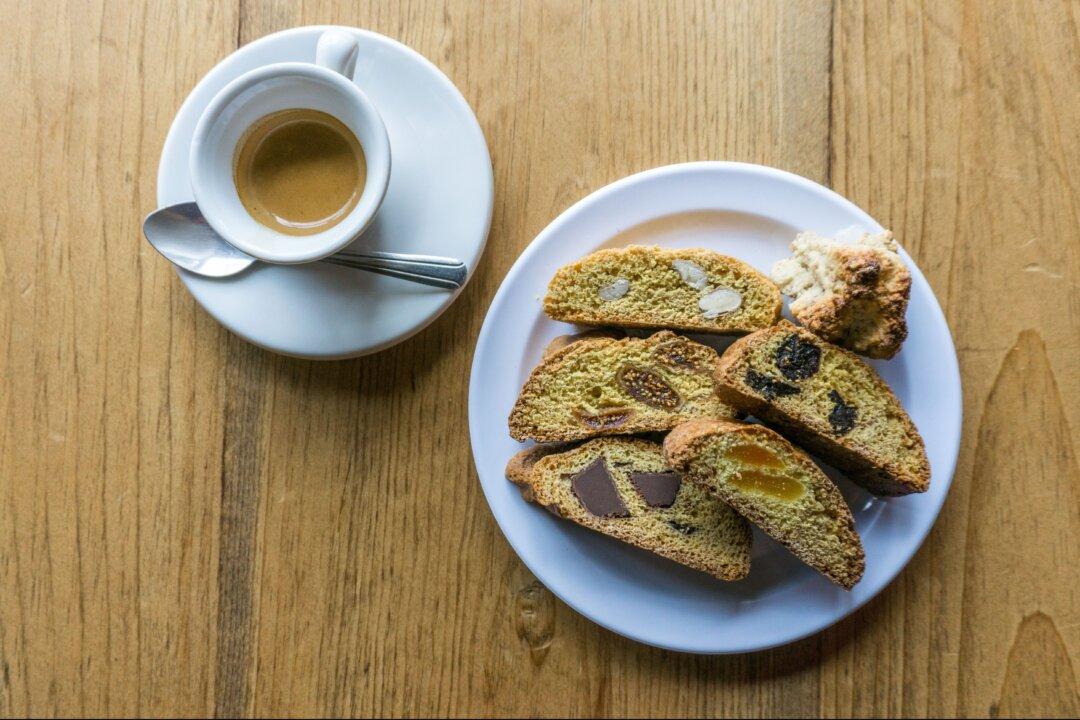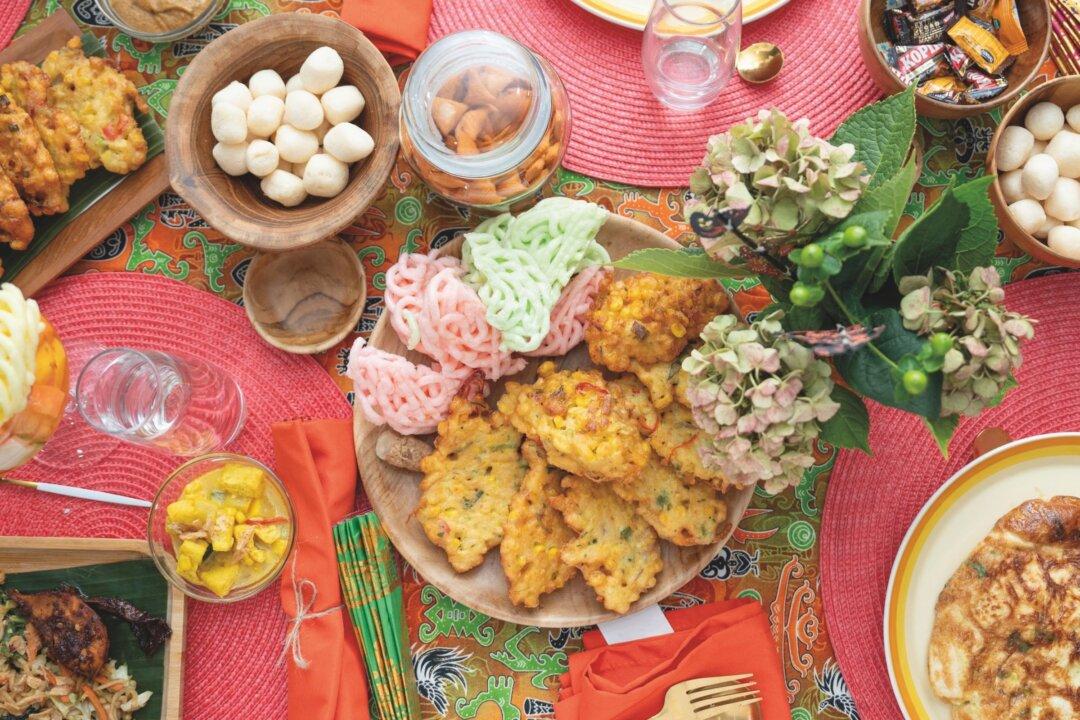JERSEY CITY, N.J.—When husband and wife Simone Bertini and Teresa Villi moved from Prato, Tuscany to the U.S., they brought a little slice of their hometown with them.
That little slice is cantucci di Prato: petite, sliced cookies, traditionally studded with whole almonds and perfumed with their nutty fragrance, that hail from Prato. The tiny town is renowned for the treats. Unlike biscotti, which are twice-baked and crunchy throughout, cantucci are baked only once, so their golden-crisp exteriors give way to soft and tender centers.






